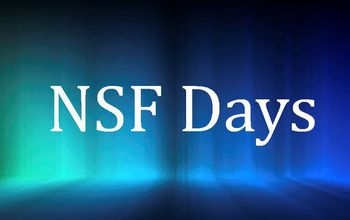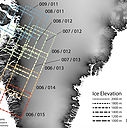Nominations should be sent to:
Brit Myers, ARCUS
Email: brit [at] arcus.org
For questions about directions in the SEARCH program, please contact:
Brendan Kelly, SEARCH Executive Director
Email: bpkelly [at] alaska.edu
Or any other member of the SSC:
https://www.arcus.org/search-program/structure/ssc-committee
The Study of Environmental Arctic Change (SEARCH; https://www.arcus.org/search-program) calls for nominations for Science Steering Committee (SSC) members. SEARCH is a U.S. interagency program with a vision of scientific understanding of Arctic environmental change to help society understand and respond to a rapidly changing Arctic.
The SSC is comprised of 12-14 members. Four new members will be selected to join the SEARCH SSC based on this nomination process. Members serve a three-year term, with a maximum of two consecutive terms. No more than two members may be based from non-U.S. institutions.
We seek nominations of candidates that are broad and cross-disciplinary thinkers, are good communicators and consensus-builders, and have a strong commitment to the SEARCH vision (included at the end of this solicitation). SSC members are expected to:
- Define and update the SEARCH vision and mission
- Guide overall directions of SEARCH implementation
- Promote and communicate SEARCH activities and plans
- Provide a supervisory role for the SEARCH Executive Director
- Work with the SEARCH Executive Director to establish strong linkages and partnerships with other relevant programs, agencies, and organizations
- Approve annual SEARCH work plans and reports
- Attend and be active participants in regular SSC meetings and working groups. The SSC has four regular meetings each year. In-person meetings are typically held twice a year (travel support provided).
While we welcome nominations from all disciplines and research backgrounds to complement existing strengths, we are particularly interested in additional members with expertise in Arctic freshwater ecosystems, coastal erosion, land-ice-ocean interactions, and partnering with Arctic stakeholders outside the academic and US federal scientific communities.
Nominations should include the person's name, affiliation, contact information, area of expertise, curriculum vitae or resume, and a brief statement on why the person would be an asset to the SEARCH program. To submit a nomination, you should first obtain the consent of the nominee. Self-nominations are welcome. Nominations should be sent to Brit Myers, ARCUS (SEARCH Science Management Office) at brit [at] arcus.org.
Nomination submission deadline: Monday, 4 April 2016.
For questions about the nomination process, please contact:
Brit Myers
Email: brit [at] arcus.org
For questions about directions in the SEARCH program, please contact:
Brendan Kelly, SEARCH Executive Director
Email: bpkelly [at] alaska.edu
Or any other member of the SSC:
https://www.arcus.org/search-program/structure/ssc-committee
The SEARCH Vision:
Scientific understanding of Arctic environmental change to help society understand and respond to a rapidly changing Arctic.
The SEARCH Mission:
To provide a foundation of Arctic change science through collaboration with the research community, funding agencies, and other stakeholders.
Towards this mission, SEARCH:
- Generates and synthesizes research findings and promotes Arctic science and scientific discovery across disciplines and among agencies.
- Identifies emerging issues in Arctic environmental change.
- Provides scientific information to Arctic stakeholders, policy-makers, and the public to help them understand and respond to Arctic environmental change.
- Facilitates research activities across local-to-global scales, with an emphasis on addressing needs of decision-makers.
- Collaborates with national and international science programs integral to SEARCH goals.


